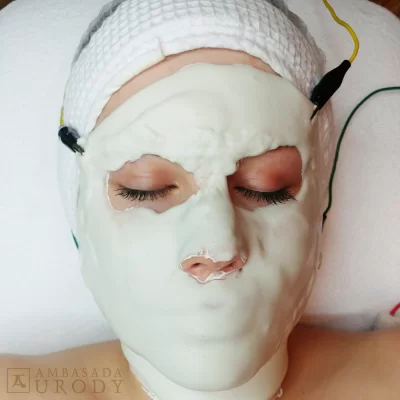Iontophoresis - what is it and how does it work?
Iontophoresis is a therapeutic method that involves the transport of ions into the body through the skin (or mucous membrane in medicine) using a device that emits direct current.
At the Beauty Embassy in Warsaw, iontophoresis is used to increase the absorption of active substances contained in cosmeceuticals deep into the skin. It is highly effective and can enhance the penetration of vitamins, growth factors, and other ingredients up to 40 times compared to standard cream application.
Electrodes are often connected to specialized masks rich in ionized ingredients for this method.
Specific treatments suitable for iontophoresis at the Beauty Embassy include Environ treatments, which combine high-quality cosmetics rich in active ingredients with iontophoresis for significant effects. The wide range of Environ cosmetics available at the Beauty Embassy allows these treatments to be tailored very individually to the patient's skin needs.
Patients at the Beauty Embassy in Warsaw generally find iontophoresis treatments pleasant. Many individuals describe a specific, yet enjoyable, tingling sensation from the current during the iontophoresis mask treatment. It can be said that iontophoresis is not painful.
Primarily, the use of this technology increases the effectiveness of the cosmetics used. Iontophoresis itself also has therapeutic effects, leading to its use in physiotherapy as well. In terms of aesthetics, iontophoresis has anti-aging and anti-inflammatory effects. It stimulates slack muscles and skin from strenuous work, firming the skin and improving facial contours. It enhances transport in blood vessels and lymphatics, improving tissue function. It also has anti-inflammatory effects on the skin, which is particularly important for acne-prone and sensitive skin.
Do you have any more questions about iontophoresis?
Learn more: Iontophoresis
